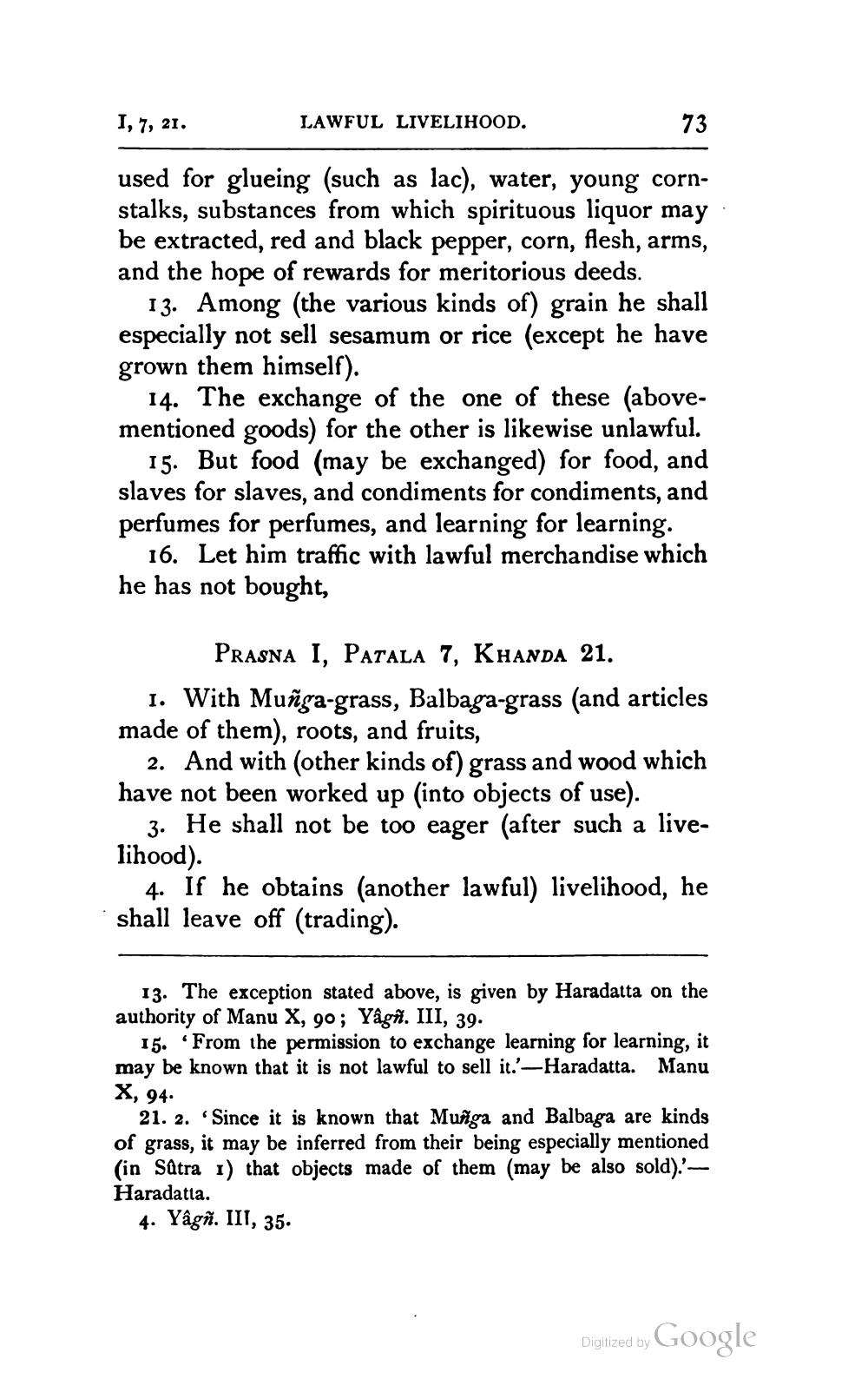________________
1, 7, 21.
LAWFUL LIVELIHOOD.
73
used for glueing (such as lac), water, young cornstalks, substances from which spirituous liquor may be extracted, red and black pepper, corn, flesh, arms, and the hope of rewards for meritorious deeds.
13. Among (the various kinds of) grain he shall especially not sell sesamum or rice (except he have grown them himself).
14. The exchange of the one of these (abovementioned goods) for the other is likewise unlawful.
15. But food (may be exchanged) for food, and slaves for slaves, and condiments for condiments, and perfumes for perfumes, and learning for learning.
16. Let him traffic with lawful merchandise which he has not bought,
PRASNA I, Patala 7, Khanda 21. 1. With Muñga-grass, Balbaga-grass (and articles made of them), roots, and fruits,
2. And with (other kinds of) grass and wood which have not been worked up into objects of use).
3. He shall not be too eager (after such a livelihood).
4. If he obtains (another lawful) livelihood, he shall leave off (trading).
13. The exception stated above, is given by Haradatta on the authority of Manu X, 90; Yâgñ. III, 39.
15. From the permission to exchange learning for learning, it may be known that it is not lawful to sell it.'-Haradatta. Manu
X, 94.
21. 2. Since it is known that Muñga and Balbaga are kinds of grass, it may be inferred from their being especially mentioned (in Satra 1) that objects made of them (may be also sold). — Haradatta.
4. Yâgñ. III, 35.
Digitized by Google




